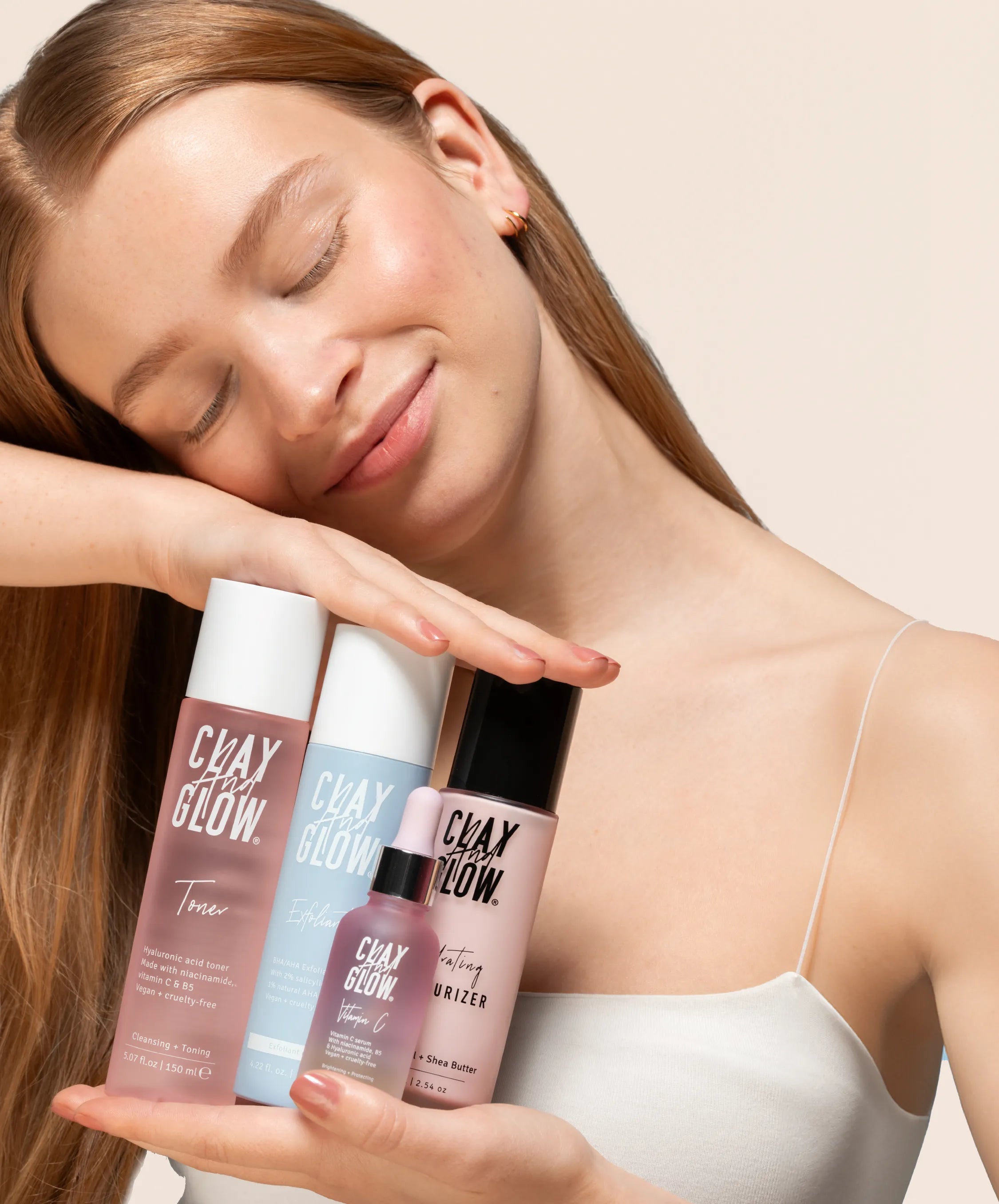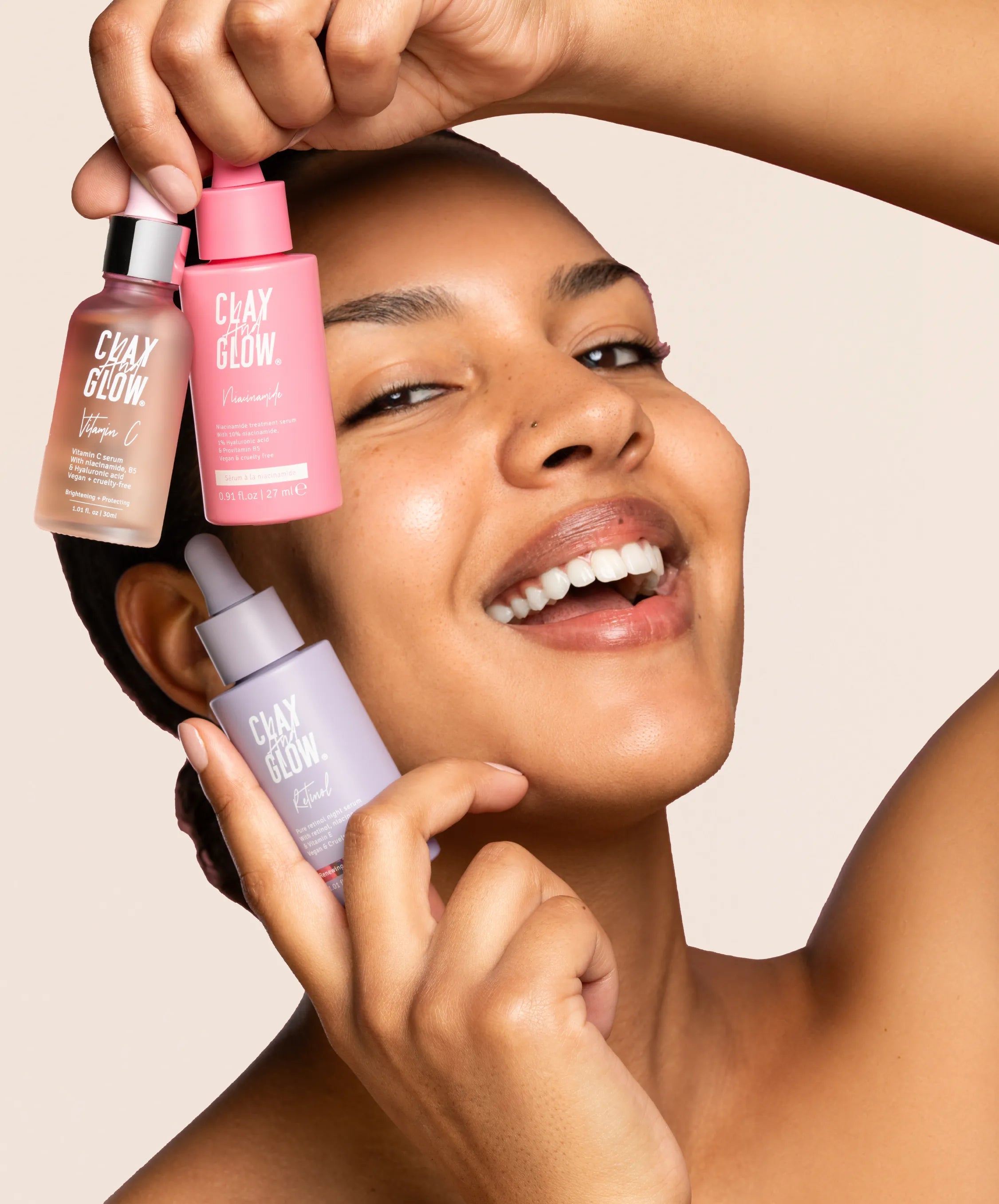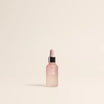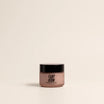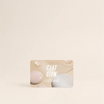While it might be tempting to layer all your favorite skincare products onto your skin simultaneously, not all ingredients play well together. Understanding which combinations are beneficial and which are better kept apart can make a significant difference in the effectiveness of your skincare routine. Here's a breakdown of the do's and don'ts when it comes to mixing skincare ingredients.
The Don'ts of mixing skincare ingredients
Vitamin C + Retinol
While combining Vitamin C and Retinol is possible, it requires caution. Both are potent active ingredients that can cause irritation when used together. If you want to continue using these ingredients in your skincare routine, then it is recommended to use our Vitamin C Serum in the morning and our Retinol Serum in the evening. Or use the ingredients every other day: on one day the Retinol Serum in the evening and on the other day the Vitamin C Serum. Pay attention to your skin's response and adjust your routine accordingly. Don't forget to apply SPF during the day to protect your skin.
Retinol + Benzoyl Peroxide
Using benzoyl peroxide and retinol together can reduce each other's effectiveness. Benzoyl peroxide can diminish the effects of retinol by making it sensitive to oxygen. To prevent this, you can use benzoyl peroxide in the morning and retinol in the evening, or use them on different days. This way, you still get the best results without them counteracting each other.
The Do's of mixing skincare ingredients
Retinol + Hyaluronic Acid
In skincare, finding the perfect combination can feel like uncovering a treasure. That's where Retinol and Hyaluronic Acid come in. Retinol fights acne and aging but can cause dryness and irritation. Hyaluronic acid steps up with its hydrating and collagen-boosting abilities. Together, they tackle aging signs and keep your skin balanced and moisturized. A perfect example of this is to first use our Hyaluronic Acid Toner, allowing it to fully absorb into your skin, and then follow with our Retinol Night Serum.
Vitamin C + Vitamin E
Combining vitamin C and E in your skincare routine provides a powerhouse defense against UV damage. While both combat free radicals caused by UV exposure, they target different types of damage. Together, they offer double the antioxidant protection for your skin.
Niacinamide + Vitamin C
Combining niacinamide and vitamin C stirs up controversy in the skincare community. Some worry they might cancel each other out, while others think they work well together. You can mix them for better skin, especially for dark spots. Just be careful if your skin is sensitive.
Oil + Water
Embrace the synergy of oil and water in your skincare routine. Water-based products, like serums, deeply hydrate, while oil-based products, such as facial oils, nourish and protect. Together, they create a potent cocktail that addresses various skin concerns, delivering hydration, nourishment, and a radiant glow. Why settle for one when you can have both?
In your journey towards flawless skin, understanding which skincare ingredients complement each other is essential. Master these combinations, and you'll unlock your skin's full potential, revealing healty and glowing skin.


